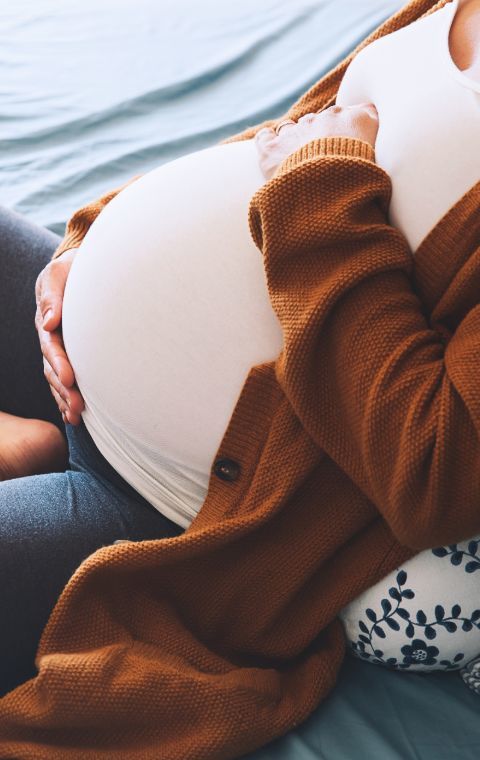
Morning Sickness
In the first trimester of pregnancy you can expect to feel many things; excited, anxious, and—unfortunately—nauseous.
Morning sickness is one of the early pregnancy symptoms that everyone knows about, but what some people don’t know is that it can strike at any time of the day.
Luckily your feelings of nausea are not dangerous and should begin to recede by your fourteenth week, but if you’re struggling with feeling sick all day long, or you think that you are at risk of becoming dehydrated, speak to your GP or midwife straight away.
What is morning sickness?
“Morning sickness” is a term used for the sickness or nausea experienced by some women in the first trimester of pregnancy. It is quite a misleading term, as “morning sickness” can strike at any time of the day.
It affects more than half of all pregnant women during their pregnancy. It usually starts at approximately 6 weeks, and most women feel it subsides at around 14 weeks. Unfortunately, some women may experience morning sickness throughout their pregnancy.
What causes morning sickness?
No one knows for certain what causes morning sickness, but it is thought to be a combination of a few different factors:
- Oestrogen - this may be the cause as these levels rise quite rapidly in early pregnancy
- Human chorionic gonadotropin (hCG) – after conception, the body begins to produce hCG. It is thought that due to the rise in this in early pregnancy, that it may be the cause of morning sickness
- Vitamin B6 deficiency – it is thought that a lack of the vitamin in the diet can cause hyperemesis gravidarum, which is a serious but uncommon form of pregnancy nausea
- A heightened sense of smell – it is not unusual for women to be sensitive to smells, and certain aromas may cause gag reflexes and induce vomiting
You may be more susceptible to morning sickness if you have suffered from motion sickness in the past, if your mother suffered from it during her pregnancies, or if you are carrying twins.
How can I find relief from my morning sickness?
- Eat small meals and snack regularly so that you never have an empty stomach. This also helps to keep blood sugar levels stable
- Sip on fluids throughout the day so that you don’t get dehydrated. You can tell by the colour of your urine if you’re not getting enough fluids. Light in colour means hydrated, while dark urine signals dehydration
- Avoid foods that may trigger your nausea
- Brush your teeth after every meal
- Get some fresh air; stale air or places with strong odours may be a trigger
- Peppermint tea or sugar-free mints help to freshen the mouth
- Wear acupressure bands. Thought to help with seasickness, they have been used in pregnancy sickness as well
- Anti-sickness tablets – if your nausea or vomiting is severe or does not improve with the above changes, your doctor may prescribe a short course of anti-sickness tablets
See here for more information on treating morning sickness.
It is always recommended that you speak to your CarePlus Pharmacist, your midwife, or your GP before commencing any treatments during pregnancy. Click here to find your local CarePlus Pharmacy.